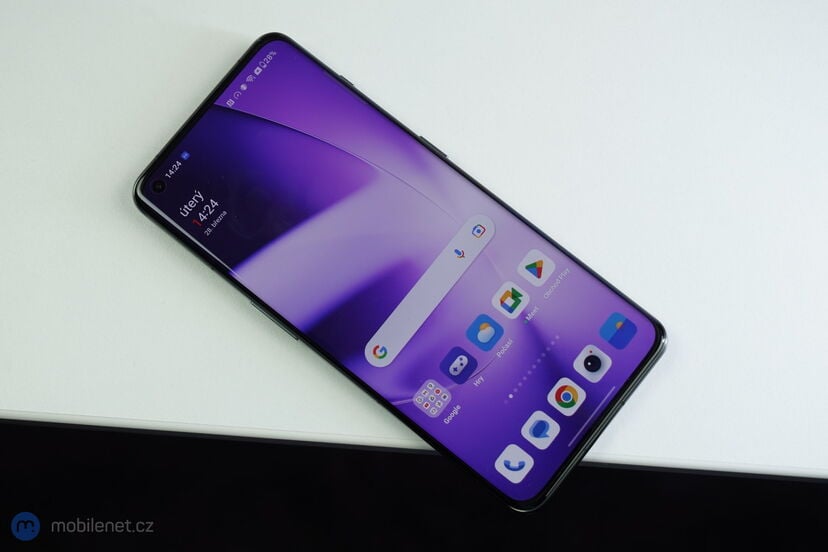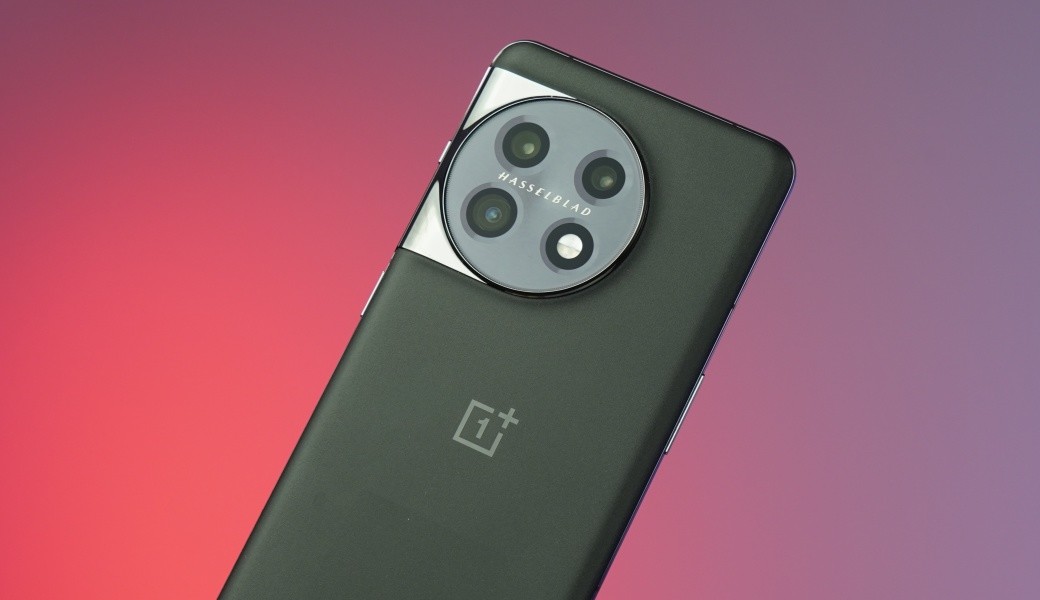This year, even OnePlus did not deprive us of a flagship model. This time, it has all 1s in its name, as if to predict where it is headed. The design is excellent and attracts, for example, a top processor and display or three capable cameras. How will the best piece from OnePlus do this time?
OnePlus has unusually prepared a single flagship model for this year, at least for now, so there is no Pro version. The novelty boasts a great display, a modern processor and a set of high-quality cameras. OnePlus, on the other hand, is conceivably returning to its earlier misdeeds, which is not a good sign considering the higher price. We’ll reveal how realistic the Model 11’s chances of succeeding are.
| Construction | 163,1 × 74,1 × 8,5 mm, 205 gconstruction: classic, resistance: again |
|---|---|
| Display | AMOLED, 6,7″ (3 216 × 1 440 px) |
| Camera | 50 MpxLED dioda, video: 7 680 × 4 320 px, 30 FPS |
| Chipset | Qualcomm Snapdragon 8 Gen 2CPU: 1×3,2 GHz + 4×2,8 GHz + 3×1,8 GHzGPU: Adreno 740 |
| Memory | RAM: 16 GBinternal memory: 256 GBmemory cards: it is |
| Data functions | 5G: againLTE: againWi-Fi: Wi-Fi 6, Bluetooth: 5.3, NFC: again |
| Operating system | Android 13 |
| Accumulator | 5 000 mAhwireless charging: it is |
| Availability | February 2023, |
Package contents: OnePlus does not forget the adapter
In addition to the phone itself, the sales package contains the necessary instructions, a key to open the SIM card drawer, as well as a charger and a USB cable.
Design processing: originality is valued
If there is one thing that the novelty can definitely attract you, it is the appearance. And no, it won’t be the front side, even if it is slightly curved. Indeed, there is really little that can be invented about it. The back, however, is a clear testament to OnePlus’ ingenuity, as it shows how to make a modern-looking and original phone. First of all, you will notice the dominant camera module, which is large and circular, but at the same time elegantly follows the side of the device.
Immediately after, you will notice a matte surface that does not stick to fingerprints. It is slightly roughened, pleasant to the touch, and thanks to it the phone does not particularly slip in the hand, the grip is secure. On the other hand, due to this surface, dust sometimes sticks to the phone. Button control is also convenient. Although they are thin on the right side, they print comfortably. We also welcome the slider to quickly change sound profiles.

The phone is made in an exemplary way, thanks to the aluminum frame and the glass back, specifically Gorilla Glass Victus. You only have to be satisfied with the IP64 degree of protection, which means that dust does not matter to the phone, but water does. The maximum is minor wetting. This is a definite competitive disadvantage.
- back with Gorilla Glass Victus protection
- very successful appearance
- nicely processed photomodule
- slider for audio profiles
- would deserve higher resistance
Display: without losing the flower
Clouds from the lack of resistance can be dispelled by the 6.7″ Fluid AMOLED display with a very fine resolution and a 120Hz refresh rate. Excellent readability with a brightness of up to 1,300 nits ensures good readability even outdoors, and protection is provided by Gorilla Glass Victus. It also made it to the Always- He, so you can always see everything. I also liked the haptic response when using it, which is sure and pleasant. The fingerprint reader is integrated directly into the display, which works really fast and accurately.

- Gorilla Glass Protection
- large diagonal
- high enough brightness
- fine resolution
- reliable fingerprint reader
Sound: traditional stereo
The sound from the stereo speakers is also pleasant, when the phone plays loudly and with an emphasis on the depths. Listening to music is otherwise better with wireless headphones, the missing 3.5mm jack probably won’t surprise you anymore.
Hardware performance: enough for even the most demanding users
Hardware should be the trump card. Qualcomm’s Snapdragon 8 Gen2 beats inside, and in our case it’s accompanied by 16GB of RAM with 256GB of storage, leaving 224GB for your data when you first turn it on. In the popular AnTuTu benchmark, the phone reached 1,236,000 points, which ranks it among the absolute best today, similar performance is achieved by the Samsung Galaxy S23+, for example. You don’t have to worry about any game or demanding application not running smoothly.
- brutal performance including up to 16 GB of RAM
- it does not heat up
Battery life: collects only pluses
The imaginary standard is a battery with a capacity of 5,000 mAh, which, however, boasts a solid endurance, where one whole day is no problem at all. Two days already means more moderate use, even without Always-On mode. Charging is possible up to 100 W, which in practice means that you can charge the entire battery in 25 minutes, or half in 10 minutes. However, the resulting impression is spoiled by the fact that OnePlus has given up on wireless charging, which is missing. This is another fundamental shortcoming, which is in its own way unique in a higher class.

- decent staying power
- super fast charging
- wireless charging is missing
Connectivity: complete
Connectivity is flawless, so 5G and NFC, and the phone also handles eSIM, generally supports two SIM cards, but if you activate eSIM, the secondary physical card slot is disabled.
Camera: solid build
If you look at the phone, you can’t help but notice a very well-designed module with cameras. It is circular and gradually connects to the side of the device. There are four holes in it, but three are used for camera lenses, the fourth is reserved for the LED.

The main camera with 50 megapixels has f/1.8 aperture, optical image stabilization and multi-directional autofocus. It is accompanied by a 48-megapixel ultra-wide-angle lens with a field of view of 115°, which unfortunately is not as much as some of the competition. The list is rounded off by a 32-megapixel telephoto lens that enables two-fold lossless zoom.
Images from the main camera stand out with true colors, balanced sharpness and essentially zero noise, which is exactly what you’d expect. In automatic mode, the images are 12.5 Mpx. Similar qualities are maintained by the other two cameras benefiting from high resolution.
Selfies can be taken with the front 16-megapixel camera. The high resolution has a positive effect on the very good quality, which is fully sufficient for any sharing between friends. However, it is more disappointing that the front camera cannot record 4K video.

Video recording is possible at a maximum of 8K resolution, but only at 24 frames per second. The results thus appear rather choppy, and visually you can achieve better results in 4K resolution.
OnePlus 11 (test video) – 8K, 24 FPS
- solid image quality day and night
- telephoto lens
- worse 8K video
- the front camera does not handle 4K video
Software: fluency first
The Android 13 environment with the Oxygen OS 13.0 superstructure and February security patches is perfectly tuned. The environment is clear and easy to use. The already mentioned fluidity and tasteful animations are addictive.
- current environment
- great optimization
Evaluation
The OnePlus 11 is currently the manufacturer’s only flagship, with no Pro variant coming close. The manufacturer traditionally bets everything on several cards, this time it is primarily about appearance, performance, display and cameras. For almost 24,000 crowns in the case of the variant we tested, OnePlus somewhat forgets that it does not forgive mistakes. All the more the essential ones in the form of the absence of higher resistance to water and wireless charging. Then more than one competition enters the game.
Competition
But we have to start with a stablemate in the form of the OnePlus 10 Pro. Although last year’s model with slightly weaker performance, you get full durability and even wireless charging for a lower price.
OnePlus 10 Pro 256+12 GB
| Dimensions | 163 × 73,9 × 8,6 mm, 201 g |
|---|---|
| Display | AMOLED, 6,7″ (3 216 × 1 440 px) |
| Camera | 48 Mpxvideo: 7 680 × 4 320 px, 30 FPS |
| Processor | Qualcomm Snapdragon 8 Gen1, 1×3 GHz + 3×2,5 GHz + 4×1,8 GHz |
| Memory | RAM: 12 GBrepository: 256 GB, it is |
| Accumulator | 5 000 mAh |
For the same money, you can buy a Motorola ThinkPhone, which has a slightly weaker processor, but can impress with increased durability and wireless charging.
Motorola ThinkPhone
| Dimensions | 158,8 × 74,4 × 8,3 mm, 188,5 g |
|---|---|
| Display | POLED, 6,6″ (2 400 × 1 080 px) |
| Camera | 50 Mpxvideo: 7 680 × 4 320 px, 30 FPS |
| Processor | Qualcomm Snapdragon 8 Gen1+, |
| Memory | RAM: 12 GBrepository: 512 GB |
| Accumulator | 5 000 mAh |
If you pay about a thousand crowns more, you can reach last year’s Samsung Galaxy S22 Ultra, which is again slightly behind in performance, but compensates for everything with a practical S Pen stylus, increased durability and wireless charging.
Samsung Galaxy S22 Ultra 128+8 GB
| Dimensions | 163,3 × 77,9 × 8,9 mm, 229 g |
|---|---|
| Display | AMOLED, 6,8″ (3 080 × 1 440 px) |
| Camera | 108 Mpxvideo: 7 680 × 4 320 px, 24 FPS |
| Processor | Samsung Exynos 2200, |
| Memory | RAM: 8 GBrepository: 128 GB, it is |
| Accumulator | 5 000 mAh |
Photo: Petr Vojtěch, mobilenet.cz


